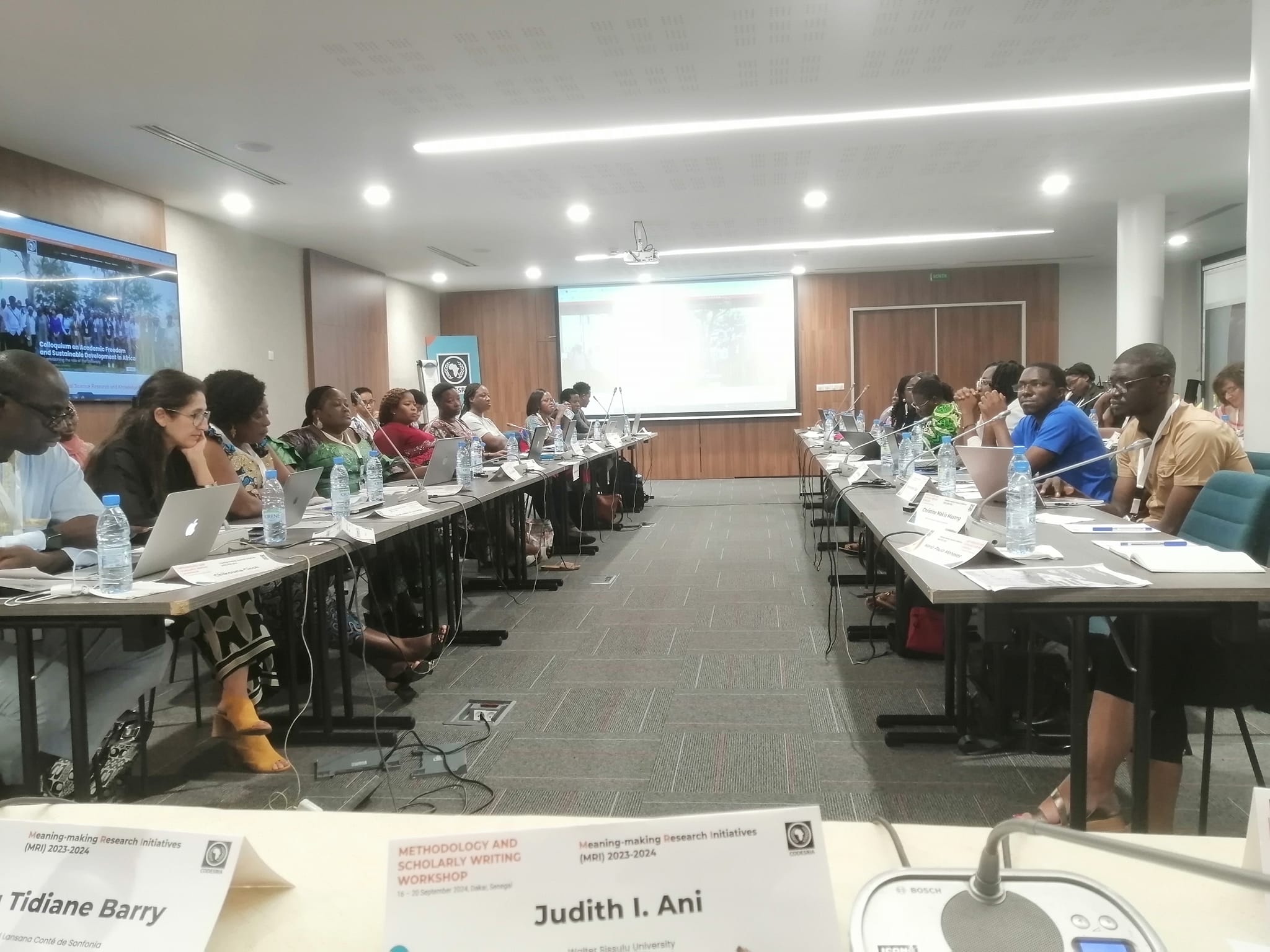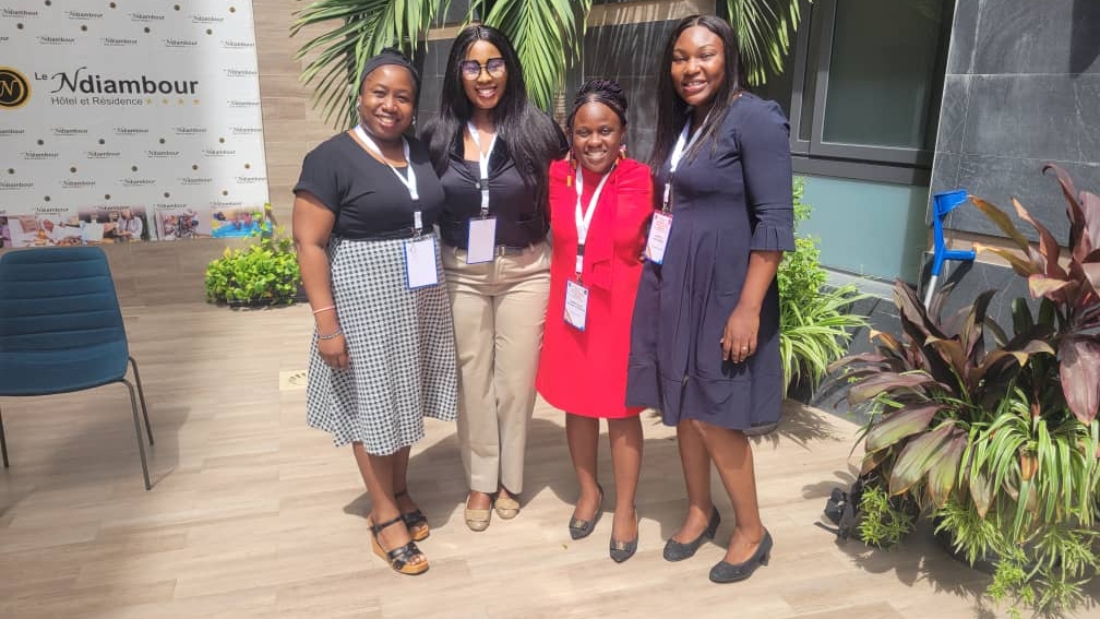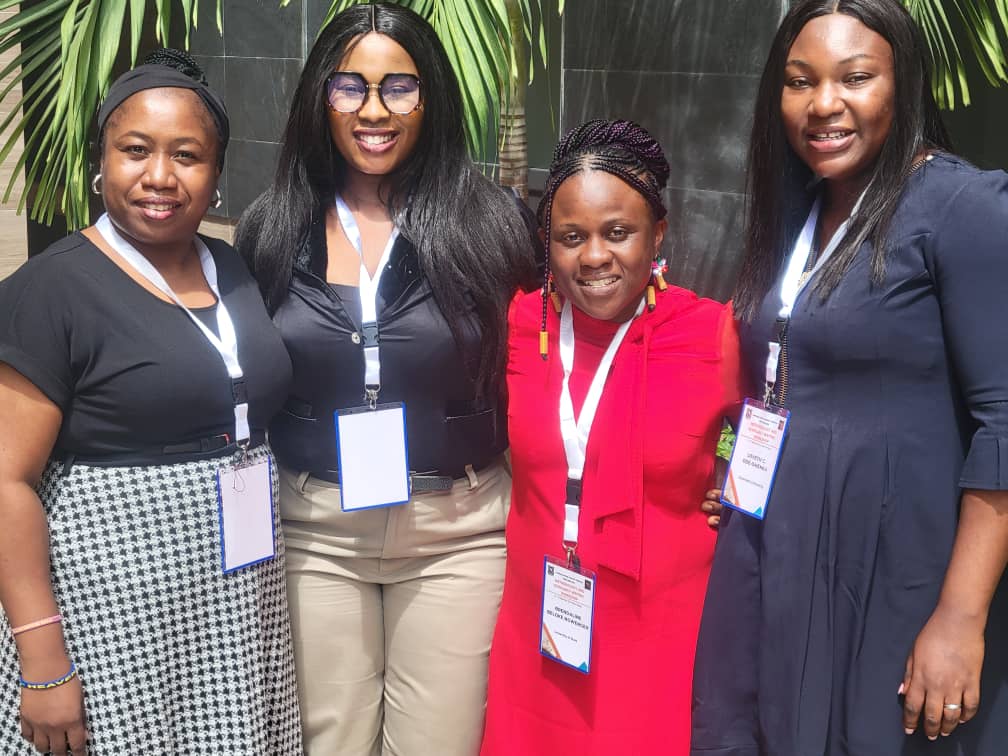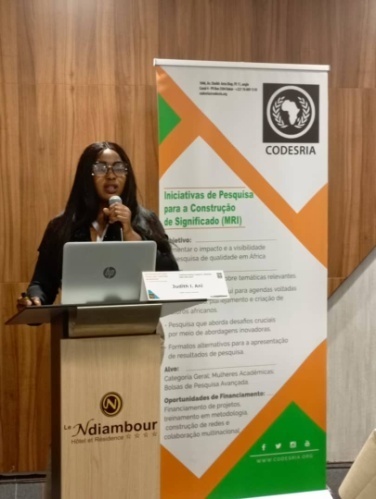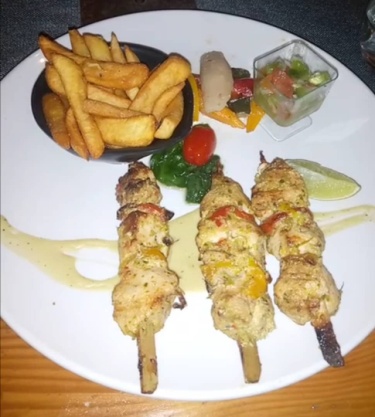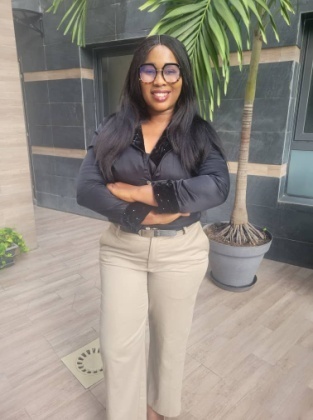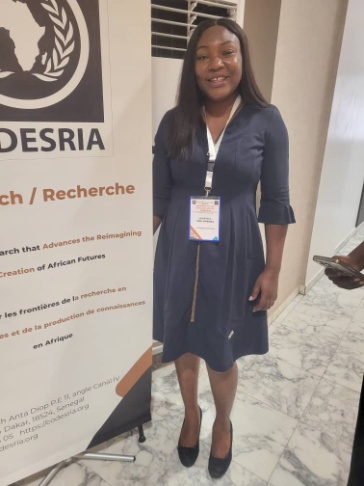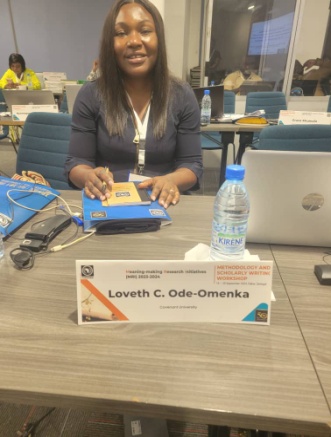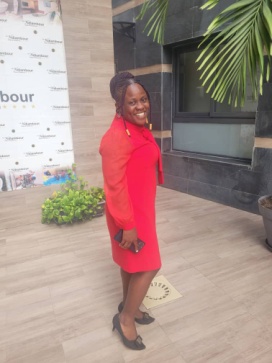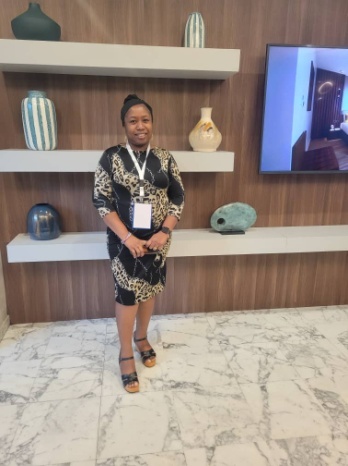Dakar Senegal, 16-20 September 2024
Following the announcement published on the website of the Council for the Development of Social Science Research in Africa (CODESRIA) on the winners of the 2023/2024 CODESRIA’s Meaning-making Research Initiatives (MRI) competition, four DIADERC team members, led by Dr. Judith I. Ani, Programmes and Partnership Lead, participated in the prestigious CODESRIA Meaning-making Research Initiatives (MRI) Methodology and Scholarly Writing Workshop held at Le Ndiambour Hotel, Dakar, Senegal, from 16-20 September 2024.
Their proposal, “Climate Change-Induced Flooding: Implications for Income and Food Security among Female Smallholder Farmers in Nigeria”, was one of 14 proposals selected from 116 submissions. This significant achievement reflects the team’s dedication to addressing the intersection of gender and climate change, with a specific focus on how climate-induced flooding disproportionately affects the livelihoods of female smallholder farmers. The research aims to provide practical, policy-relevant recommendations to enhance climate resilience among these vulnerable groups.
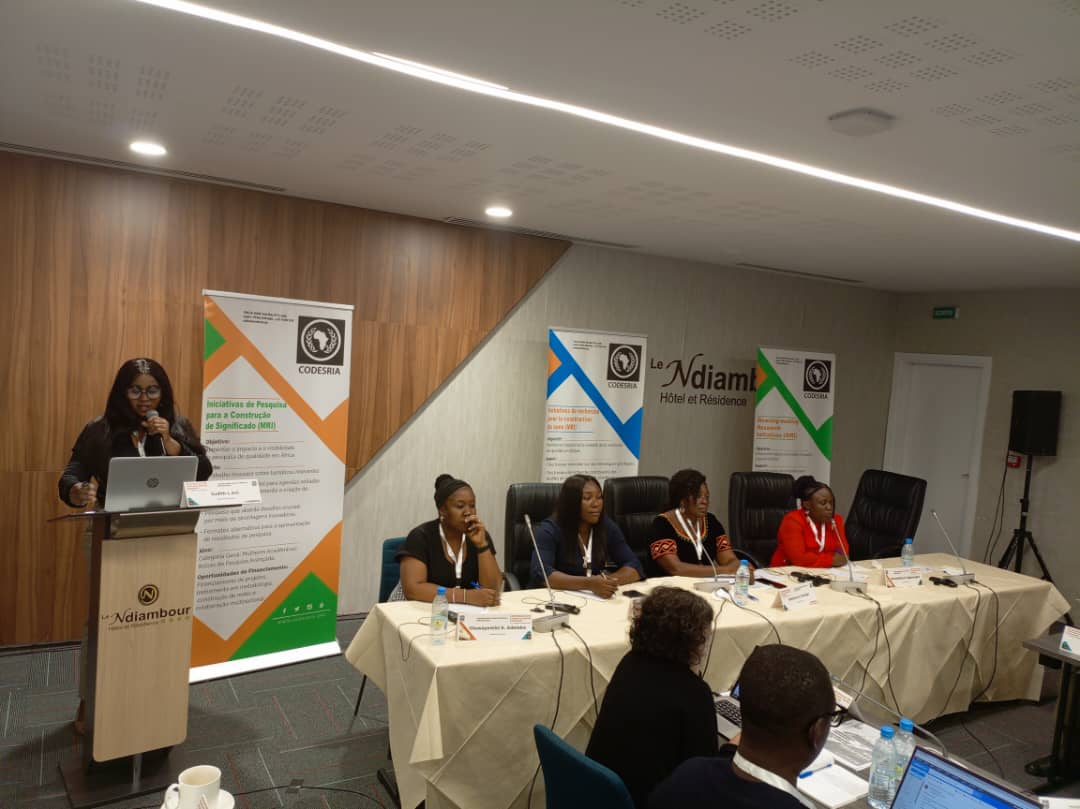
The workshop provided valuable opportunities to enhance their research methodologies, writing skills, and project design, ensuring the robustness of the proposals and alignment with CODESRIA’s thematic priorities. During the workshop, scholars were introduced to the resource persons who will guide their projects through completion. Participants also gained insights into African epistemologies, expanded their research knowledge, and built connections with fellow scholars. Team members also had the opportunity to present (https://x.com/CODESRIA/status/1835686162188439587?t=9-I2YaAU5fc1iOp6qQzzYg&s=08) their proposal to resource persons and fellow scholars.
It is important to highlight the active participation of team members throughout the workshop, where they contributed in various roles and capacities. For instance, Dr. Oluwayemisi K. Adeleke served as a Rapporteur during a group presentation, while Dr. Judith I. Ani took on the role of Rapporteur during a resource-person presentation. Additionally, Dr. Ani was part of a roundtable discussion with laureates on the theme “Rethinking African Scholarship in Complex Times: Possibilities and Challenges.” Their involvement showcased their commitment and added significant value to the workshop.
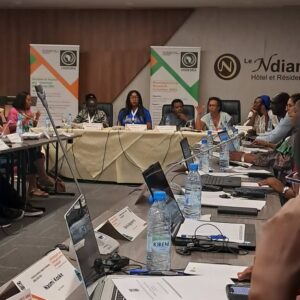
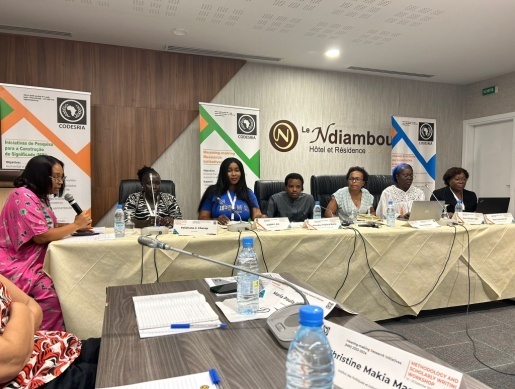
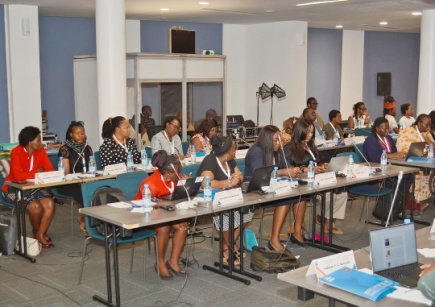
Beyond the in-class activities, members had the pleasure of exploring the beautiful city of Dakar renowned for several tourists’ attractions. In other words, the workshop was not just an academic pursuit; it also offered a chance to explore Dakar’s rich culture. The DIaDeRC team visited the Museum of Black Civilisations (Musée des civilisations noires), recognized by Time magazine as one of the “World’s 100 Greatest Places of 2019.” This museum beautifully encapsulates Africa’s rich history, science, antiquities and heritage, and its exhibits connect the past and present of Black people across the globe.
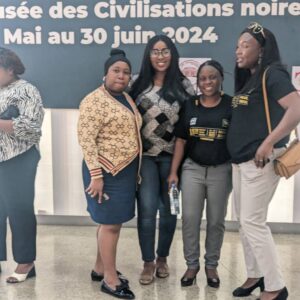
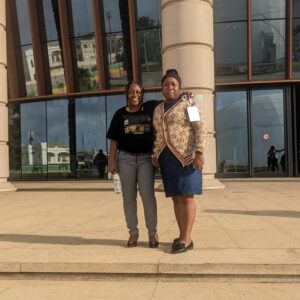
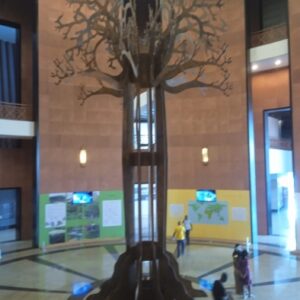
A visit to the iconic African Renaissance Monument (Monument de la Renaissance Africaine), further underscored the resilience and strength of African people. The 52-meter (171 ft)-tall bronze statue, located on top of one of the twin hills known as Collines des Mamelle, overlooking the Atlantic Ocean, serves as a symbol of hope and a reminder of the sacrifices made by African heroes. An inscription at the foot of the statue enjoins tourists to think about the resilience of the people whose sacrifice brought about the African Renaissance. As the team climbed the 180 stairs to the monument, they reflected on the importance of resilience—a value that aligns with their research efforts aimed at contributing to Africa’s development.
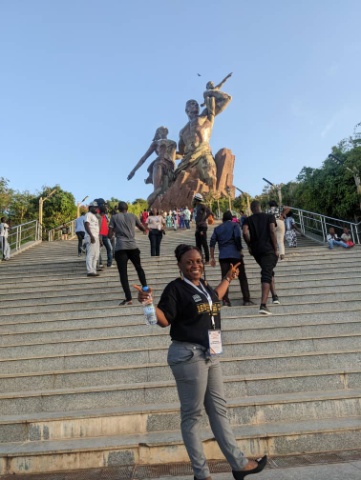

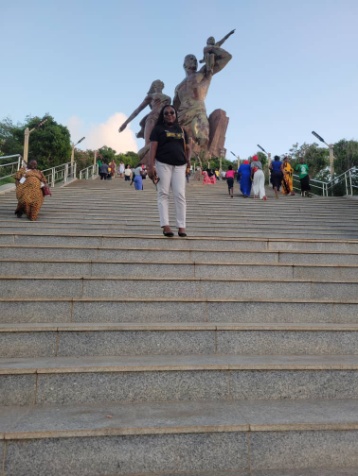
It is often said that all work and no play makes Jack a dull boy. Thus, in addition to the cultural experiences, the team enjoyed a relaxing day at Dakar’s scenic beach, where they found time to unwind and take in the beauty of the Atlantic Ocean. Here, they admired the beautiful sea, listened to the rustling of the waves and heard the sound of the waters that chimmed its consonance with their scholarly sojourn in Dakar. It was such a refreshing time spent at the Dakar beach.
They capped off their trip with a memorable dinner at Restaurant Phare des Mamelles, known for its rich history and live music performances, fostering camaraderie among workshop participants. This Restaurant lies on an iconic altitude of 153m and offers rich experience of the iconic Lighthouse and aerial view of the Atlantic ocean and surrounding environs.
This journey marked a significant milestone for the DIaDeRC team and exemplifies the power of collaboration, networking and passion for societal development. We are excited to welcome the team back and look forward to seeing the impact of their research on female smallholder farmers in Nigeria.
Keep flying the flag high, DIaDeRC! Your work is inspiring and vital to Africa’s future!
Below, team members share their personal experiences at the workshop:
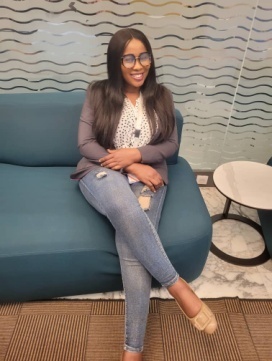
Judith I. Ani:
The workshop offered me rich insights into African epistemology and the need to do Afri-centric projects/research, using methodologies that are well suited in time and space, and most relevant to the African continent and people. It also enabled me to network and forge new collaborations with other participants. I also had the opportunity to explore the rich culture of Dakar.
Loveth Ode-Omeka:
First and foremost, I thank God for the opportunity to be part of this award-winning team. God made it possible, and to Him be the glory! The MRI workshop was an eye opener to all that we are being taught on the ASMN series. The grant proposal was a collaboration with members of the team I met in DIADERC. (My new found sisters). The workshop gave me opportunity to improve my knowledge in research writing and research methodology especially the discussion on mixed method approach. I also had the opportunity to network with other researchers and learn more about research critiques. Presentations of the various MRI proposal exposed us to better insight about our work , and will be applied judiciously for a better proposal submission. I had the privilege of participating in viable discussions about Africa and learning from other scholars. The travel exposure to a Francophone West African country gave me a better view of how I see Africa. I intend to apply knowledge gained to my research work, especially my Ph. D work. and to also impact same to my students. Thank you DIADERC for linking us to this life transforming opportunity. Thank DIADERC Chair.
Brendaline B. Ngwengeh:
My experience in the MRI- Methodology and Scholarly Writing Workshop organized by CODESRIA was very refreshing and enriching. During the workshop, various presentations were made. In the course of it, I learnt the difference between methodology and methods, how to coin a good Research Design. On the Historical part I learnt, colonialism and coloniality and how it still exists today in Africa, Youths and Politics in Africa as well as the Role of Youths in Africa’s Development. At the end we were encouraged to engage on how scholars can incorporate AI in their scholarly writings since it is the current trend and is already shaping research works especially in advanced countries. Resource persons were distributed to each group to discuss and improve on the quality of the works. It was an engaging moment. We also visited Tourist and Historical Sites like the National Museum in Senegal during which facilitators enlightened us on the Historical significance of some of the artifacts displayed. It was a 5-day workshop after which we left happily to our various countries with the aim of effecting the corrections on what has been taught, learnt and discussed. I deeply appreciate the experience and my team members for the love and unity showed during the seminar. All Glory to God Almighty!
Oluwayemisi K. Adeleke:
The workshop provided a rich platform for presentation, discussion and exchange of ideas among presenters, resource persons and organizers. During the workshop, I gained tremendously and had new insights from the different presentations by other researchers selected for the MRI workshop and the resource persons who further helped the progress of the presentations in order to improve the study. Also, I was able to enhance my understanding of social science research methodologies, as well as have further insightful discussion that led to the formation of future collaborations among other African researchers from other African countries. Similarly, several contemporary issues affecting the African continent was discussed as it relates to socioeconomic effect, colonialism and decolonialism, Anthropology, epistemology etc. The executive secretary of CODESRIA and the resource persons further encouraged us to think critically and out of the box in order to have innovative research approaches that will be tailored to the African economy. Also, I learnt about ethical considerations especially when working with marginalized communities. I am excited to have been given the opportunity to participate in the CODESRIA workshop because the experience has been invaluable. It has further reinforced my belief on the importance of a multidisciplinary approach to research and the need for ongoing dialogue about Africa’s challenges and opportunities. The exchange of ideas and experiences has inspired me to rethink my own research approach and consider more collaborative and inclusive strategies. The CODESRIA workshop was a significant learning experience for me and I aim to apply the insights gained to my own research and contribute to collaborative efforts within the academic community.
